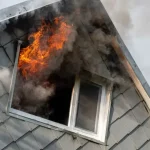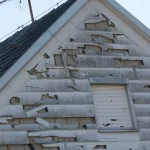Many homeowners face the temptation to hire unlicensed contractors for home improvements, sometimes opting to skip the proper paperwork to save money. This often leads to unpermitted work, a situation that can cause serious issues, especially when it comes to insurance coverage. A surprising number of homes—up to 50% in the U.S.—contain some form of unpermitted work. So, what does this mean for your homeowners insurance? Can you expect coverage if a project goes wrong and it turns out that the work was unpermitted?
In this blog, we’ll explore the importance of permits, what constitutes unpermitted work, and the potential consequences when it comes to your insurance policy. Additionally, we’ll provide tips for homeowners who find themselves dealing with unpermitted work.
When Do You Need a Permit for Home Improvement Projects?
It’s a common misconception that only major home projects, like adding a pool or a new room, require a permit. In fact, many types of home improvement projects, whether large or small, demand permits. Anything that involves construction, alterations, or demolition typically requires approval from local authorities.
Because permit requirements can vary by location, it’s essential to contact your local township or city office to find out whether your specific project requires a permit.
Permits serve a critical purpose: they help ensure the safety of residents by making sure that work is done to code, which minimizes risks of accidents or damage caused by poor workmanship.
What Is Considered Unpermitted Work?
Unpermitted work refers to any home improvement project completed without obtaining the necessary permits from local authorities. Not all projects require permits—painting a wall or installing a light fixture may not require approval—but for any work involving structural changes, electrical, plumbing, or major renovations, a permit is likely necessary.
However, what constitutes “unpermitted work” can vary from location to location. For example, a simple task in one city may require a permit in another, so it’s important to understand your local regulations.
Why Do Homeowners Skip Permits?
There are several reasons why homeowners may opt for unpermitted work. For one, permits can be costly, and some contractors or homeowners may decide to bypass the process to cut costs. Additionally, the process of obtaining a permit can be time-consuming, especially for large projects. In some cases, homeowners may simply be unaware of the need for a permit.
If you’re buying a home, it’s also possible that previous owners may have completed unpermitted work, which could lead to complications later on.
Does Homeowners Insurance Cover Unpermitted Work?
Unfortunately, the answer is usually no. Insurance companies tend to view unpermitted work as a form of negligence, especially since permits exist to protect the integrity of your home and its safety. When a project is done without the necessary permits, the insurance company might argue that the work was not up to standard, making it ineligible for coverage.
Here are some potential consequences of unpermitted work on your insurance:
1. Claim Denial
Imagine you experience water damage after plumbing work was completed without a permit. If you try to file a homeowners insurance claim for the damage, your insurer is likely to deny it due to the unpermitted work. This could leave you footing the entire bill for repairs.
2. Increased Out-of-Pocket Expenses
Without insurance coverage, you may face hefty out-of-pocket costs. For example, if someone gets injured on your property due to unpermitted work, you could be held liable. Homeowners insurance typically covers injuries, but if the work is unpermitted, your insurer may refuse to pay, and you’ll be responsible for covering the medical expenses.
3. Loss of Insurance Coverage
Your insurance provider may not just deny claims; they might also raise your premiums or cancel your policy entirely if they discover unpermitted work. This can make it more difficult and expensive to find coverage in the future.
How to Fix Unpermitted Work
If you discover that your home contains unpermitted work, either from a previous owner or due to a recent project, you may still be able to remedy the situation. This process is known as remediation and, while it can be costly and time-consuming, it’s essential for protecting both your home and your insurance coverage.
The first step in remediation is to contact your local township or permitting office. They will assign an inspector to assess the situation and determine whether the work meets safety codes. If the work is found to be substandard, you may need to undo some of the changes and redo them to code.
In either case, you’ll need to obtain the proper permits for the work that’s been done, whether it’s up to standard or not. This may involve submitting new plans or paying additional fees, but it’s a necessary step to avoid complications with your insurance policy.
Final Thoughts: Protect Your Home and Insurance Coverage
It may seem like a small shortcut to skip obtaining a permit, but unpermitted work can have serious consequences. Homeowners insurance typically won’t cover damage caused by unpermitted work, and the costs to fix things can quickly escalate.
To ensure the safety of your home and the validity of your insurance coverage, always obtain the necessary permits before starting any major home improvement projects. If you find that your home contains unpermitted work, take the necessary steps to remediate the situation, even though it may be an expensive process. The effort is well worth it to protect both your property and your peace of mind.




